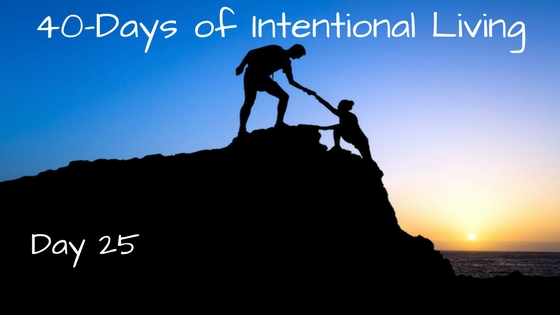Good Morning My Friends! This is going to be a great day filled with protection!

Stop Provoking
“Let us not become conceited, provoking and envying each other” (Galatians 5:26, NIV).
We need to stop provoking one another. This not only negatively impacts the other person, but also God. God does not like it at all when we provoke each other.
When we provoke someone we are annoying, aggravating, irritating, and exasperating them to the point of anger.
I don’t know how many of you know the story of Hannah in the Bible, but she really wanted children. Unfortunately, she, like many women, struggled to become pregnant. This alone grieved her soul.
Now Hannah’s husband had another wife, Peninnah, and she had lots of children.
Peninnah was very jealous of Hannah because the husband loved Hannah, and he would treat her extra special. Peninnah didn’t like that. So guess what she did to Hannah? She provoked her:
“And her[ Hannah] rival used to provoke her grievously to irritate her, because the Lord had closed her womb” (1 Samuel 1:6, ESV).
This provoking went on for years and years. Poor Hannah would cry and be so sad. There’s was nothing Hannah could do about the fact that she was unable to have children.
Can you imagine intentionally irritating a woman because she couldn’t have children? It’s shocking to me that one woman who had so many children would cause another woman such grief because she didn’t have any children.
This, my friends, is what happens when we are envious of what another person has. Hannah had the husband’s love, and Peninnah was jealous. Even though she had children, her desire was for the husband’s love. So she intentionally provoked Hannah to grief for years.
God doesn’t want us provoking one another.
Why Do We Provoke?
I think we provoke one another for many reasons, but it all comes down to what’s going on in our own hearts.
“What causes fights and quarrels among you? Don’t they come from your desires that battle within you?” (James 4:1, NIV).
Peninnah’s desire was to have her husband’s love, so she allowed that desire to cause her to provoke Hannah.
I personally have provoked others too many times in my life.
I’ve provoked my children to anxiety when I was so impatient with them. Too many mornings when they were in elementary school, I dropped them off at school filled with frustration because I struggled with impatience. I’m truly sorry, kids!
I’ve provoked my husband too many times to count too. Why? Because I didn’t like something that was going on. I annoyed him to the point of frustration and anger. I would grumble, have my pity party and maybe even start criticizing him over things.
Doing all these things are provoking another.
Consequences
There are consequences of provoking another person. There are also major consequences of provoking God.
- Anger – “From their youth, the Israelites and Judeans have done nothing but what is evil in My sight! They have done nothing but provoke Me to anger by the work of their hands”—this is the Lord’s declaration” (Jeremiah 32:30, HCSB).
- Discouragement – “Fathers, do not exasperate your children, so they won’t become discouraged.” (Colossians 3:21, HCSB).
- Grief – “How oft did they provoke him [God] in the wilderness, and grieve him in the desert!” (Psalm 78:10, KJV).
- Destruction – “If you keep on biting and devouring each other, watch out or you will be destroyed by each other” (Galatians 5:15, NIV).
When we provoke each other, we cause anger, discouragement, grief, and destruction.
Protect Others
God wants us to intentionally protect one another. This is a major part of loving others.
“Love always protects,” (1 Corinthians 13:7, NIV).
To protect someone means we are providing a shield to them; we are guarding them from exposure, injury, damage, or destruction.
Rather than being the one to cause injury and damage to someone, how about be their protector?
Practical Application
Protect your children from anxiety by not frustrating them off to school. Protect them from discouragement by not exasperating them. This does not just apply to fathers, by the way.
Protect your colleagues by not frustrating them.
Protect your spouse by not being irritating. If you don’t know what irritates your spouse, ask, and then stop doing that thing.
Here’s one, and I’m speaking from experience. Protect your server when you’re dining at a restaurant. Don’t annoy the person with your demands and sense of entitlement. Did you know how irritating you are and how frustrating that is to your server? It causes anger and discouragement.
God doesn’t like it when we irritate others.
Let’s be like David and ask God to protect us and others. The Psalms are filled with cries for protection.
“Protect me, Lord, from the clutches of the wicked. Keep me safe from violent men who plan to make me stumble” (Psalm 140: 4, HCBS).
Don’t be one of those mean people who make others stumble.
If someone is provoking you to anger, walk away, so that you don’t stumble and sin.
Let’s be a protective shield for others. Let’s guard one another, not provoke one another today.
Just for Today
Refrain from Provoking. Embrace Protecting!


I sure have enjoyed reading your words of intentional living!
Thank you, Deb! That means a lot to me. Thanks for joining me on this journey! 🙂
I don’t think I’ve ever heard protection explained quite like this before. I see how patience plays right into it (an area God’s been at work in my life for awhile). Michelle, thank you for a positive direction for each of these posts!
Pearl, I’m convinced my own journey of learning how to be both patient and protective has opened up some ideas for me to embrace that I never would have known had I not had to live it. Learning to embrace healthy ways to relate with others is truly a journey.
If it helps any, God worked in my life a very long to make me more patient. Guess what? He reminds me from time to time too. I’m having to wait for quite a few things even now. So, be strong. One day you’ll be standing in line not even realizing how long you had to wait because you will have developed an amazing amount of patience.